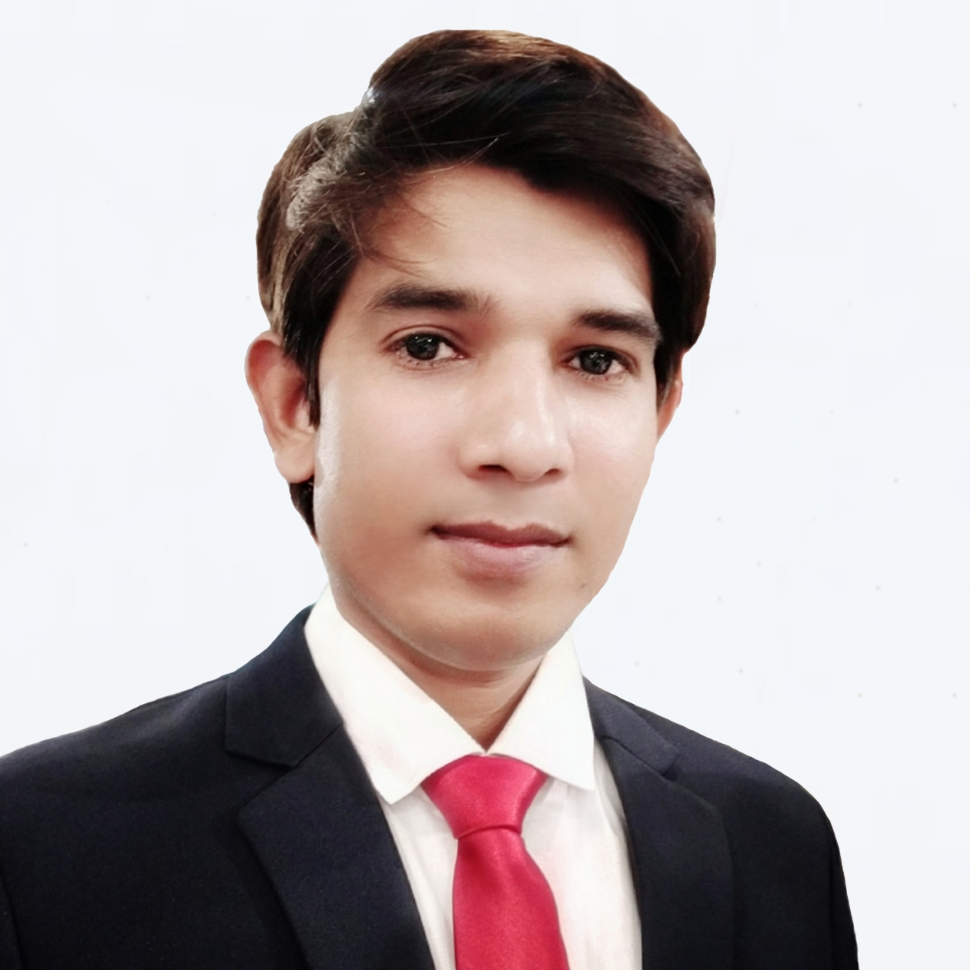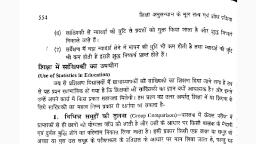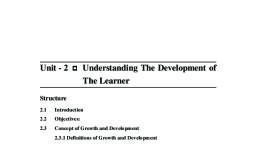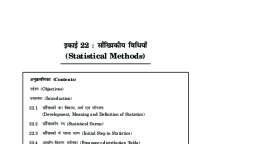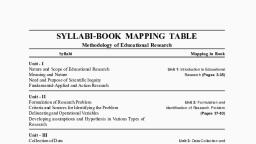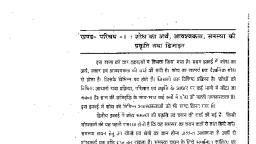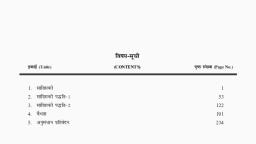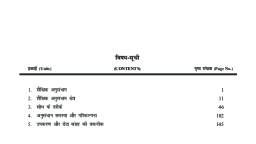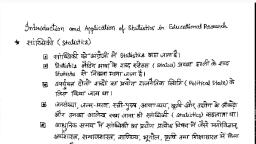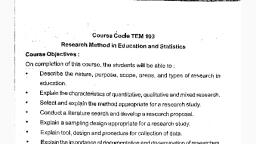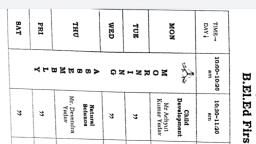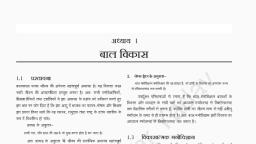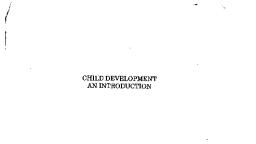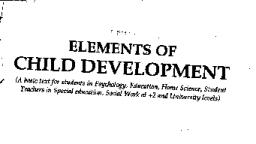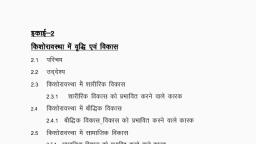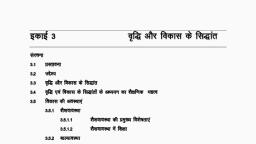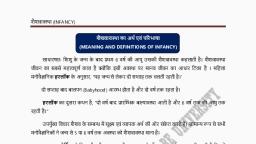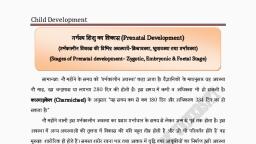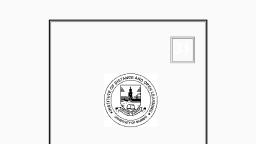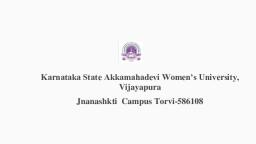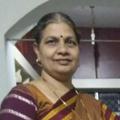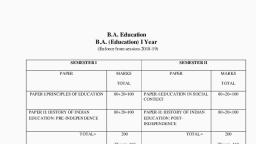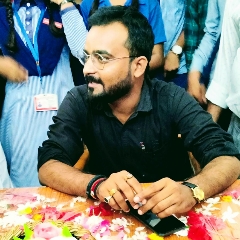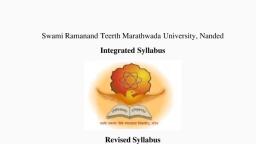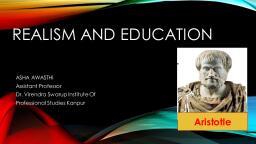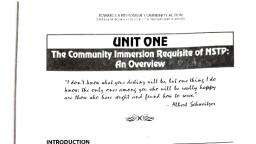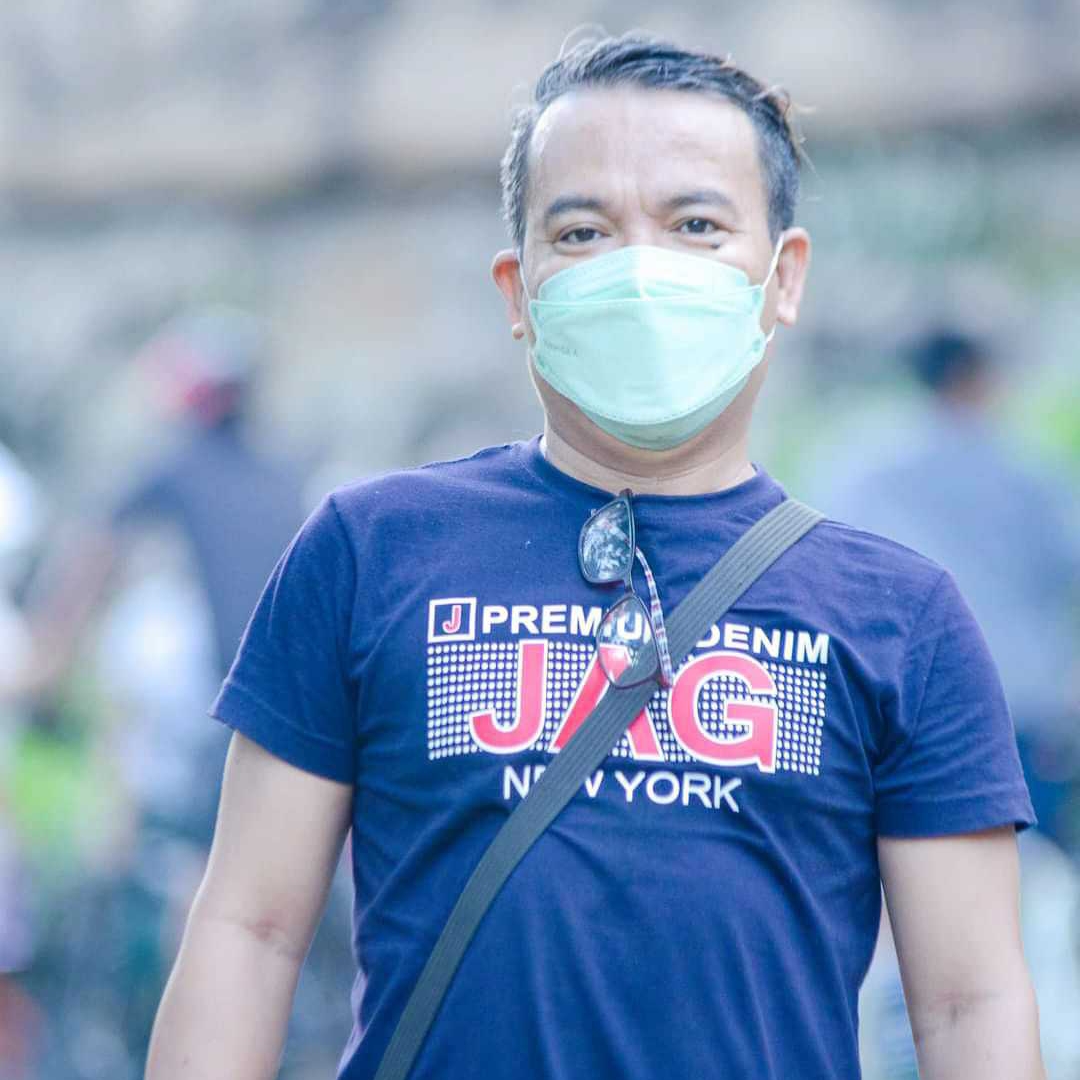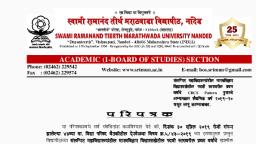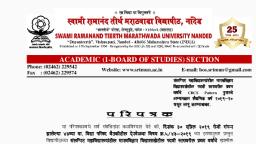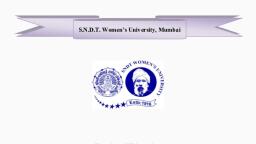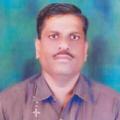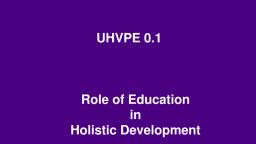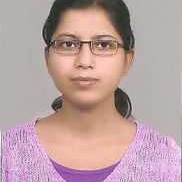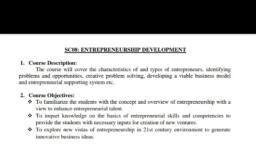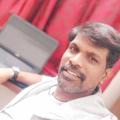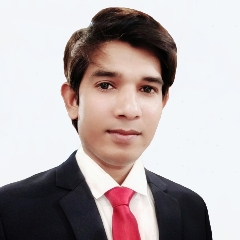Page 1 :
Curriculum, for, Four Years (8 Semester) B.El.Ed. Programme, , 2020-21 Academic Year and Onwards, , Department of Teacher Education, , Nehru Gram Bharati Deemed To Be University, , Prayagraj,UP
Page 2 :
Preface, Education reforms invariably accord highest priority to improve teacher effectiveness. It, requires consistent upgradation of teacher-education programmes. Over the last two decades in, India, the issue of curriculum renewal and extended duration of Primary stage teacher education, has received serious attention., The student-teacher has to critically examine the conditions of the school, reflect and, have the potential to perform the desired role even in conditions of scarcity and deficiency of, various kinds which a large number of schools face in our country. A student-teacher has not, only to reorganize his/her understanding of the subject specialization learnt previously, but also, has to be well-equipped with the essentials of pedagogy, competencies and skills required to, create a conducive learning environment in schools for each and every learner. Accordingly, the, four-year integrated B.El.Ed. Course aims at a complete development of the student-teacher;, particularly in knowledge and skills, in individual care of the learner and also in methods and, evaluation designed to facilitate learning. It aims at developing understanding of and competence, to render disciplinary knowledge into forms relevant to stage specific understanding of teachinglearning situation apprehended through intensive study of conceptual explanations, observation, and analysis of live classroom situations as well as hand-on experiences and longer duration of, field experience. Interactive processes, i.e. group reflection, critical thinking and meaningmaking have been encouraged. The maturity of student-teachers has been kept in mind while, visualizing modes of learning engagements; instead of continuous teacher monitoring, greater, autonomy to learners has been given in accordance with andragogic principles of learning. The, syllabus retains the essence of student-teachers being active participants in the learning process, and prepares the student-teachers for facing the emerging challenges resulting out of, globalization and its consequences. Four-year B.El.Ed. programme corresponding to the, emerging vision in teacher education incorporating inputs as suggested in the NCTE Regulation, 2014., The Bachelor of Elementary Education (B.El.Ed.) programme is a four-year integrated, professional degree programme of Elementary Teacher Education offered after the senior, secondary (class XII) stage of school. The programme is an attempt towards fulfilling the need, for professionally qualified elementary school teachers. B.El.Ed. is designed to integrate the, study of subject knowledge, human development, and pedagogical knowledge and
Page 3 :
communication skills. Both professional and academic options are available to the students who, graduate with a B.El.Ed. Degree. It has also upgraded the professional status of the elementary, school teacher by providing for a University degree for elementary education. At present, the, programme is being offered in Nehru Gram Bharati Deemed to be University Prayagraj,UP, The B.El.Ed. Graduates, The B.El.Ed. programme aims to produce graduates trend Elementary Teachers of high, calibre in the field of teacher education. A lot of effort is spent in the training of students and, giving them a supportive and stimulating environment. The programme is at present being, offered by Nehru Gram Bharati Deemed to be University Prayagraj. Given below are some of, theprofessional and academic options available for the B.El.Ed. Graduates: Teaching in, elementaryschools (Classes I to VIII) B.El.Ed. graduates are eligible for appointment in State, Schools,Sarvodaya Vidyalayas, Kendriya Vidyalayas and Navodaya Vidyalayas and Private, Schools across India. Leading the elementary school systems in various capacities. Teaching and, research in elementary education in the government and non-government sectors. Postgraduate and research studies in education and related disciplines., , The specific objectives at this stage may be to:, , , education., , , , , , , , , Develop among perspective teachers an understanding of psychology of their pupils., , , , Enable to acquire, competencies relevant to stage specific pedagogy, curriculum, development, its transaction and evaluation., Enable to foster creative thinking among pupils for reconstruction of knowledge., , , , , , , Enable the prospective teachers to understand the nature, purpose and philosophy of, , , , Acquaint them with factors and forces affecting educational system and classroom, situation., , Develop to communication skills and use of modern information technology for school, purpose;, , Develop aesthetic sensibilities., Acquaint with research in education including action research., Develop awareness about role of education in building up a democratic, secular and, socialistic pattern of society., Programme of Study, The programme offers both compulsory and optional theory courses, compulsory practicum, courses and a comprehensive school internship. The different areas of study are as follows:, 1. Theory Courses, Foundation Courses, , Pedagogy Courses, , Liberal Courses,
Page 4 :
, , Specialized Courses in Education, , , 2., , , , , , , , , , Practicum Courses, Performing and Fine Arts, Crafts and Physical Education, School Contact Programme, Observing Children, Self-Development Workshops, Classroom Management and Material Development, School Internship, Projects, Tutorial/Colloquia, , , Academic Enrichment Activities, , Framework of Assessment and Granting of the Degree, , , , , , , , , , , , , , , , , , , , , , At the end of each academic year, Annual Examination will be conducted all the theory, courses taught during that particular year., 20% weightage is given to internal assessment in the theory courses., Practicum courses are based on internal & external assessment., Students have the option to write the examination in Hindi or in English., Sessional Evaluation will be done by departmental committee under the supervision of, Head of department., st, Question paper will consist of 6 questions with internal choice and 1 question is, Compulsory. The compulsory question will contain 5 sub questions from each unit of the, course., The minimum marks required to pass the examination is 45% in each theory papers with, internal assessment, 50% in each practicum courses and 50% in the overall aggregate for, each year., Examination system will be followed by NGB Vishwavidyalaya, Allahabad rules., Division will be awarded on the basis of total marks obtained by the students in both, theory and practicalas below-, The B.El.Ed. Degree will be awarded only if the candidate has passed the examination in, each of the semester.
Page 6 :
First Semester, S.No., , Area, , 01, 02, 03, , Theory, , 04, 05, 06, , Practicum, , BLF 1.1, , Child Development, , Sessional, 20, , Marks, Terminal, 80, , BLF 1.2, , Nature of Language, , 10, , 40, , 50, , BLF 1.3, , Core Natural Sciences, , 10, , 40, , 50, , BLF 1.4, , Core Social Sciences, , 10, , 40, , 50, , BLPR 1.1, , Performing and Fine Arts, , 25, , 25, , 50, , BLPR 1.2, , Craft and Participatory Work, , 25, , 25, , 50, , Course Code, , Course Title, , Total, , Total, 100, , 350, , Second Semester, S.No., , Area, , 01, 02, 03, , Theory, Practicum, , Course Code, , Course Title, , Sessional, , Marks, Terminal, , Total, , BLF 2.1, , Contemporary India, , 20, , 80, , 100, , BLF 2.2, , Core Mathematics, Colloquia, school contact, programme/ Physical Education, Total, , 10, , 40, , 50, , 25, , 25, , 50, , BLPR 2.1, , 200, , Third Semester, S.No., , Area, , 01, , Theory, , 02, , 03, , 04, 05, , Course Code, BLF 3.1, , BLF 3.2, BLO 3.1, BLO 3.2, BLO 3.3, BLO 3.4, BLO 3.5, Liberal, Course, BLO 3.6, (Optional-I) BLO 3.7, BLO 3.8, BLO 3.9, BLO 3.10, BLO 3.11, BLPR 3.1, Practicum, BLPR 3.2, , Course Title, Cognition and Learning, Language Across the Curriculum, English I, Hindi I, Sanskrit I, Mathematics I, Physics I, Chemistry I, Biology I, History I, Political Science I, Geography I, Economics I, Observing Children, Self-development Workshops, Total, , Sessional, 20, , Marks, Terminal, 80, , Total, 100, , 10, , 40, , 50, , 20, , 80, , 100, , 25, 25, , 25, 25, , 50, 50, 350, , Sessional, 10, , Marks, Terminal, 40, , Total, 50, , Fourth Semester, S.No., , Area, , 01, 02, , Theory, , 03, 04, , Practicum, , Course Code, , Course Title, , BLF 4.1, , Language Acquisition, , BLF 4.2, , Human Relation & Communication, , 10, , 40, , 50, , BLPR 4.1, , Physical Education, , 25, , 25, , 50, , BLPR 4.2, , Colloquia & Enrichment, , 25, , 25, , 50, , Total, , 200
Page 8 :
Course Code: BLF 1.1, , CHILD DEVELOPMENT, Course Objectives:, The course will enable student-teachers to, , , , , , , develop an understanding about the impact of socio-cultural context in shaping human, development, especially with respect to the Indian context;, , , , acquire theoretical perspectives and develop an understanding of dimensions and stages, of human development and developmental tasks;, understand a range of cognitive capacities and affective processes in human learners;, , , , , , , , , , , , , understand the concept of Human Development., understand the influences of heredity and environment on Human Development., , , , become aware of different contexts of learning and situate schools as a special, environment for learning;, understand the Children with special Needs., , , , Gain an understanding of different theoretical perspectives on learning with a focus on, cognitive views of learning as well as social–constructivist theories;, , , , Explore the possibilities of an understanding of processes in human cognition and, meaning–making them as basis for designing learning environments and experiences at, school, , UNIT- I, Concept, Issues and theories of Human Development - Concept of Human, Development and reason to study it, Developmental Principles, influences of heredity and, environment, developmental periods in the human life span, methods for studying Human, Development, concept of socialization, education and actualization in the concept of, developmental theories of Ericson, Piaget and Kohlberg,, UNIT - II, Pre-Natal Development- Importance of conception, physical and mental development of, infants, emotions in infancy, the infant in the family and implications for personality, development., UNIT - III, The Pre-school Child-Physical growth and motor development, Intellectual, characteristics, development of personality with special reference to identification and, child rearing techniques, gender-stereotyping, morality, play pattern of pre-school, children.
Page 11 :
Practicum, , , Assignment/Project, , 3 Marks, , , , Seminar Presentation/GD, , 3 Marks, , , , Sessonal Test, , 4 Marks, , Total, , 10 Marks, , Books Recommended:, , , , , Text Books of class VI to X of UP Board, , , , Text Books of class VI to X of CBSC Board
Page 12 :
Course Code: BLF 1.3, , Core Natural Science, Course Objectives:, After Completion of Course the Students will be able too, , appreciate that science is a dynamic and expanding body of knowledge;, , o, , appreciate the fact that every child possesses curiosity about his/her natural, surroundings;, , o, , identify and relate everyday experiences with learning Natural science;, , o, , appreciate various approaches of teaching-learning of Natural science;, , o, , understand the process of science and role of laboratory in teaching learning situations;, , o, , use effectively different activities/demonstrations/laboratory experiences for teachinglearning of Natural science;, , o, , integrate in physical science knowledge with other school subjects;, , o, , analyse the contents of Natural science with respect to its branches, process skills,, knowledge organisation and other critical issues;, , o, , develop process-oriented objectives based on the content themes/units;, , o, , identify the concepts of Natural science that are alternatively conceptualised by, teachers and students in general;, , UNIT-I, Natural Science : Concept, Scope and Importance of, Science as a domain of enquiry, as, a dynamic and expanding of knowledge; as a process of constructing knowledge,, Developing scientific attitude and scientific temper, Nurture the natural curiosity,, Classification, property, concept, relation, law., UNIT-II, Properties and Measurement: Measurement of length, mass and time, density, pressure,, work and energy, weight, falling of bodies, gravitation, heat and temperature, states of, matter, properties of magnets, electricity, refraction, and dispersion., UNIT-III, Physical and chemical changes: separation of mixture, atoms and molecules, metals and, non-metals, oxide, acids, bases and salts, air and combustion, water, hard and soft.
Page 13 :
UNIT-IV, Living and non-living thing: classification of living world, germination of seeds, life, process e.g. respiration, digestion, reproduction, photosynthesis, transportation,, phenomena, food chain, interdependence of plants and animals., UNIT-V, Practical Natural Science and applications: importance and uses of laboratory work,, library references, field survey group discussion, expert opinion in Natural Science, brain, storming on natural phenomena, environmental and adoption, technology and health., Practicum, Assignment/Project, , 3 Marks, , Seminar Presentation/GD, , 3 Marks, , Sessonal Test, Total, , 4 Marks, 10 Marks, , Books Recommended:, , , , , , , Text Books of class VI to X of UP Board, , , , Text Books of class VI to X of NCERT, , , , https://en.wikipedia.org/wiki/Outline_of_biology, , , , Singh, Sardar(2012), General Science, Agra: Sahitya Publication.
Page 14 :
Course Code: BLF 1.4, , Core Social Science, Course Objectives:, After Completion of Course the Students will be able to, , , , develop an understanding of the nature of Social Sciences,, , , , comprise Social Sciences, and also of Social Sciences as an integrated/interdisciplinary, area of study;, , , , to acquire a conceptual understanding of the processes of teaching and learning Social, Sciences;, Understand the relationship between human experience and the growth of institution, Understand the Relationship between human life, space and resources, Understand the Relationship between human life and environment, , , , , , , , , , , , , , , , , , , to enable student teachers examine the prevailing pedagogical practices in classrooms, critically and to reflect on the desired changes;, Understand the Study of the relationship and interaction of people in group, to acquire basic knowledge and skills to analyse and transact the Social Sciences, curriculum effectively following wide-ranging teaching learning strategies in order to, make it enjoyable and relevant for life;, , UNIT-I, Nature of Social Science: Data, method and evidence to be discussed in the context of, history, Geography, civics, economics and sociology. Role of social science discipline in, the learner’s development. Significance of perspective and context in the study of social, sciences., UNIT-II, Relationship between human experience and the growth of institution: Special, reference to monarchy, aristocracy, imperialism, fascism, nationalism, democracy, and, citizenship., UNIT-III, Relationship between human life, space and resources: Special reference to movement, from a subsistent economy to a surplus economy, demography and the distribution of, wealth in society, spatial interaction in Indian society.
Page 15 :
UNIT-IV, Study of the relationship and interaction of people in group: human rights, human, duty, culture and cultural lag, social stratification and social change., , UNIT-V, Relationship between human life and environment: Introduction of Solar system in, the special context to earth, human environment, wild life and eco-system, population, growth and its problems, major rivers and mountain series., , Practicum, Assignment/Project, , 3 Marks, , Seminar Presentation/GD, , 3 Marks, , Sessonal Test, Total, , 4 Marks, 10 Marks, , Books Recommended:, , , , , Text Books of class VI to X of UP Board, , , , Text Books of class VI to X of CBSC Board
Page 16 :
BLPR 1.1, , Performing and Fine Arts, Objectives, To provide a theoretical background on the relation between education and society, To initiate a process for independent, enjoyable and motivated learning by the learners, themselves on the basis of their own experiences, , To help realize one’s own potential for self-enhancement, To help recognize the importance of group work and socialization, To develop organizational skill, interpersonal relationship and discipline, To draw linkage between various art forms, To work on linkages between dramatics and school subjects, To develop a repertoire of skills for use in teaching-learning situations, To grow with an attitude and philosophy about life learning, Task, The student must be guided to acquaint with four thrust areas., 1. Related to developing students on personality and capacity., 2. Related to help develop the potentialities of school children to the point of driving, home the fact that child is the creator of knowledge, 3. Related to develop communication and interaction capabilities, 4. Related to find linkages between various art forms and school subjects so as to, develop a holistic view about learning., The practicum can fulfill the objectives only when a series of workshops are, organized in continuity and under professional guidance, over the academic year. Suggested, activities are given below., 1. Performing Arts related Task- Theatrical background, Drama as playful, transformation, Enhancement of ‘self’, Creating space, Taking the floor, Communication,, Verbal Communication, Non-Verbal Communication, Improvisation, Problem solving,, Relaxation, Linkage activities, Drama and school objects, Listening/viewing and, exploring Regional Art forms of music, dance, theatre and puppetry, 2. Fine Arts related Task- Experimentation with different materials of Visual Art, such as, pastel, poster, pen and ink, rangoli materials, clay, etc. Drawing, painting of different, kinds with water colours, oil paste, batik, tye and dye, fabric colours, block printing, etc., Record keeping., Each student will be expected to maintain a reflective report which includes:, a detailed record of the sessions, , reflective analysis of the activities, , insights gained
Page 17 :
linkages with school subjects, with examples, , Time, frame, The student will be required to attend a minimum of 22 workshops, out of a total of 26., Every Workshop will be of 3 hours duration., , Supervisory support, Workshops must be conducted and supervised by a professional (trained in drama,, theatre,) and must be co-ordinate by faculty members. There are following facts included, in supervision and helps provided by supervisors:, Plan and conducting of activities, , Maintaining a diary of comments on each session and each students, , Initiating discussion and build up an environment for critical and reflective shared, , Assessment, , There will be an ongoing internal assessment of each student by the concerned, professional and faculty member, using the following basis and criteria., Basis and Criteria, 1. Activities assessment based on Regularity, Participation, interest, Self-, , Marks, 5, , discipline, Interpersonal adjustments, Organizational skill and Confidence, 2. Performance assessment based on Attitude towards work, Initiative taking,, , 10, , Originality and resourcefulness, Skills acquired, Flexibility and adoptability,, Problem solving and Creativity, 3. Reflection assessment based Description of sessions, Analysis of activities,, , 10, , Linking dramatics to pedagogy with examples, Reflections and critical, assessment of dramatics in education, Overall presentation, including the, arrangement and look the journal, as a record for future reference., Total, , 25, , Note:, No separate guideline has been provided first and third year students. However, for the, third year students the theoretical aspects, linkage with art forms & curricular subjects, and all – round communication skills would be of major importance.
Page 18 :
BLPR 1.2, , Craft and Participatory Work, Objectives, To learn to, , , , , , , , Recognize and actualize one’s own potential for creativity, , , , Develop a repertoire of skill in craft, , , , Use craft skill in education in order to stimulate creative expression, imagination, and generate confidence among children, , , , Enable children to express their emotions, , , , Provide ways for promoting decision-making in children, , , , Enable children to plan, collect and perform activities on their own using various, creative media, , Workshops, Craft activities are to be conducted in the form of workshops for groups of 12-16, students, under the supervision and guidance of professionals. Workshops will include, individual and group work. The focus of these workshops should not only be to develop, skills of craft but also skills for the use of craft in education., Some of the suggested media that need to be used for developing craft skills in students;, Paperwork, Origami, paper cutting, collage making, collage, clay modelling, paper cutting, and folding, etc., Modeling, Model making, mask making using clay, plaster of Paris or any other medium, Waste material, Making different forms of animal and human figures using natural materials such, as flowers, twigs , leaves, making objects or puppets out of waste material such as, ice-cream sticks , empty match boxes , wool ,cotton , socks, thread , sticks etc., Puppet making, Using paper, cloth and other materials to make puppets, Paper Mache, Making various objects and masks using the skill and the technique of paper, Mache.
Page 19 :
Self- Development Workshops, The self-development workshops have been conceptualized to facilitate the studentteacher's process of personal development. The workshops aim to cover broad areas of, awareness of: one's own strengths and limitations, developing sensitivity, open, mindedness, and positive attitudes. It further seeks to develop the ability to communicate, and relate with children and adults and developing one's own personal aim and vision as a, teacher and as a person., Record keeping, Each student will keep regular written records of the workshop sessions. This would, include, , , , , detailed description of the activities undertaken, , , , use of the learnt skill in pedagogy by giving specific examples, , , , Students reflection and critical assessment of the use of the craft skill in education, , Time frame, Each student will be required to attend a minimum of 25 craft workshops in a year. Craft, workshop could be conducted either twice a week over half the academic year or once of, week over the entire academic year., Space, Craft workshops require enough floor space for individual and group work. The allotted, room mast also have storage and appropriate display space., , Supervisory support and professional guidance, Students will participate in craft workshops under the supervision and guidance of, professional crafts person. In addition, a faculty member will coordinate the craft, workshops with the professional resource person(s).The professional trainer will:, , , facilitate the process of learning, covering various media, help students to draw linkage between specific activities and the teaching-learning, process
Page 20 :
Assessment, Each student will be assessed by the concerned professional on the following basis, and criteria :, Basis and Criteria, 1. Various media and Craft assessment based on Selection, skill development, , Marks, 5, , and originality, 2. Individual reports assessment based on description of the activity, visual, , 10, , layout and sample items, specific pedagogic examples, reflection and critical, assessment of crafts skills in education, 3. Performance assessment based on Regularity, participation, interest,, , 10, , creativity, cooperation with group members, initiative taking and repertoire of, skill, Total, , 25
